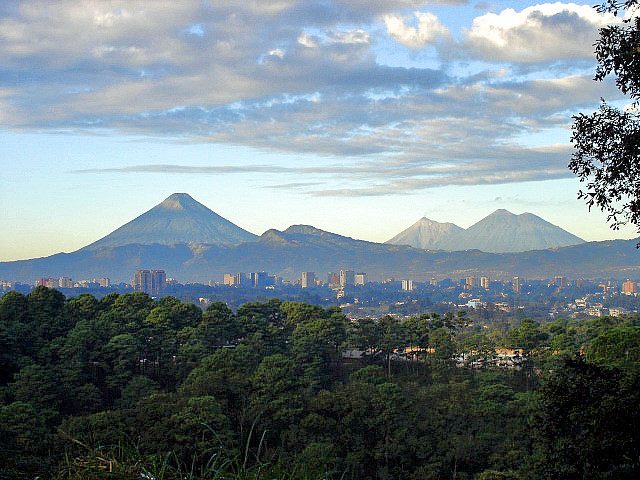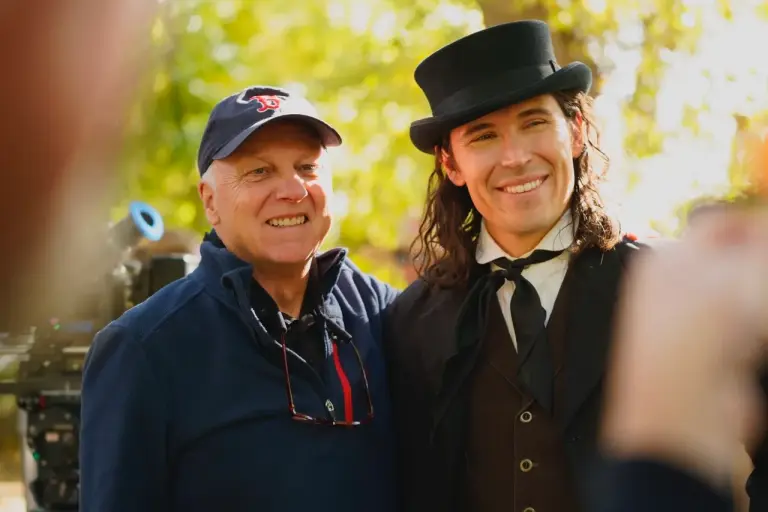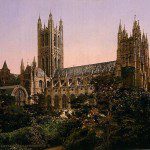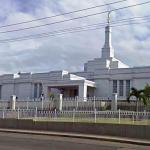
For the next two weeks or so, I’m not going to be able to spend as much time on my computer as I typically do. I won’t be able to manage this blog as well as I usually do, or to respond as quickly to emails and comments. I’ll miss all or almost all of the criticism and mockery aimed my way at the Peterson Obsession Board. I’ll be otherwise occupied, and I won’t always have access to the internet. Perhaps not even, reliably, every day. I’ll do my best, but it can’t altogether be helped. I apologize for that in advance.
With some others of our group, I flew last night from Salt Lake City to Houston and then from Houston to Guatemala City. One thing already pleases me very much: No jet lag! It’s the same time here as it is in Utah. Normally, I feel pretty much like death warmed over after an international flight. But not this time!
However, we arrived very late, the airport was confusing and inefficient, and it took a while to get into our hotel room. Departure was early on Wednesday morning — this morning — and we had a very full day. Then we had a late afternoon flight to Flores, in the Guatemalan lowlands (the Petén), and a longish drive out to our lodging in the Parque Nacional Tikal, where electricity is available from 5:30 to 8:00 AM, and again from 1:00 PM to 3:00, and then, finally, from 5:30 PM to 11:00 PM. Internet is available only during those hours, and only in the lodge. This is a rustic and beautiful place, and we’re definitely in a jungle.

The editor of the Warsaw Signal, Thomas Sharp, and his co-conspirators, who were down south of Nauvoo in Mississippi River town of, well, Warsaw, and the mob that did the deed eastward in Carthage thought that, by murdering Joseph and Hyrum Smith, they had put an end to “Mormonism.”
Now, though, Thomas Sharp and his cronies are just about completely forgotten — except as evil footnotes in the history of the Church and as (excellently) portrayed in the Interpreter Foundation film Six Days in August. Virtually nobody has visited Warsaw in recent decades unless (as I’ve done on a couple of occasions) it has been to visit the wreckage of the place where they hatched their plot. Curiously, though, as I learned on Saturday night, Tom Sharp’s former home and the directly adjoining tavern in which the conspirators met have now been purchased and restored (probably much more beautifully than they ever were before) by a Latter-day Saint woman. I hope that Mister Sharp is aware of this and, if so, I wonder what his reaction is.
And the only thing of interest in the dusty, sleepy, nondescript little town of Carthage — “the town that time forgot,” as I like to call it — is the jail in which Joseph and Hyrum were murdered. Beautifully landscaped, meticulously maintained, adorned with statues of the martyred prophet and patriarch, it’s become something of a place of pilgrimage. Every year, thousands and thousands people come from across the United States and beyond to pay their respects to the two men whose lives were unjustly taken yhere, to contemplate one more time the appalling and solemn events that occurred on 27 June 1844.
To their enormous discredit, some detractors of Mormonism have vainly sought to defend the perpetrators of that quasi-official frontier assassination or, at least, to minimize the guilt that they bear and to try to blame the victims.
I quote here from an item that I wrote quite a few years ago in response to some materials produced by the Southern Baptist Convention:
In the view of Rev. Wright, who is an ordained minister in the Southern Baptist Convention, not even the murder of Joseph Smith was undeserved. He goes further, in this regard, than did the experts at the SBC’s Denominational Summit on Mormonism, which was held in North Carolina on the one hundred and fifty-third anniversary of the Prophet’s death. “Smith was killed while escaping jail,” they said, untruthfully. Responding to some remarks made by President Gordon B. Hinckley, Pastor Wright notes that
“the deaths of Joseph and Hyrum on June 27, 1844, didn’t occur until after Joseph had fired upon the so-called “mob” with a pistol that had been secreted to him while in jail and had killed one man and injured several others.
“”Rage and persecution” may have followed the Mormons to Illinois, but the Saints of that day brought most of it upon themselves!”
Rev. Wright is wrong about Hyrum’s death, which occurred immediately prior to Joseph’s drawing the pistol. But he is almost certainly correct in his claim that Joseph’s firing of the pistol took place while Joseph was still alive. His description of the events at Carthage represents an important and novel historical reconstruction, and it is vital that we understand it with precision. Apparently, Rev. Wright feels that Joseph Smith was obliged—though he was unjustly imprisoned and had not yet been tried, let alone convicted of anything, much less convicted of a capital offense, to allow “the so-called ‘mob'” to butcher not only himself and his brother Hyrum but his two friends, Willard Richards and John Taylor, whose only crime was that they had come to visit the prisoners. (John Taylor was, in fact, severely wounded by “the so-called ‘mob.'”)
Rev. Wright’s revised version of the events in Carthage seems to run along the following lines: The wily criminal lunatic Joseph Smith, who had remained quiet throughout his captivity, deliberately chose the very time when the peace-loving Carthage Greys—fully armed and with traditional blackened faces—were innocently gathered about the jail for their annual June 27th Militia Picnic. Frolicking with their weapons and calling out the death threats that customarily accompanied that grand holiday in frontier Illinois—it was a simpler time, and June 27th had not yet been commercialized—the proto-Gandhian Greys had merely been playing the venerable party game known among these gentle rustics as “Eat Hot Lead, Mormon Scum!” Then, wholly without provocation, Joseph Smith opened fire on the revelers, using the “pepperbox” pistol that Cyrus Wheelock had smuggled into his cell. Naive historians, both Latter-day Saints and others, have always assumed that Joseph’s action had something to do with the fact that his brother Hyrum had just been shot to death. (Presumably, Hyrum was killed by a stray bullet from a local hunter, or perhaps from an evil Mormon assassin.) Rev. Wright, however, cannot be taken in by such sophistries. When Joseph continued to shoot at them as they mounted the jail’s interior staircase bearing a peace offering of cookies and punch, they had no choice. They killed him and his (already dead) brother in self-defense. It is true that they also shot John Taylor at least four times. But then, he had been very naughty to them with his cane, and needed to be taught a lesson.
Posted from Parque Nacional Tikal, Guatemala













